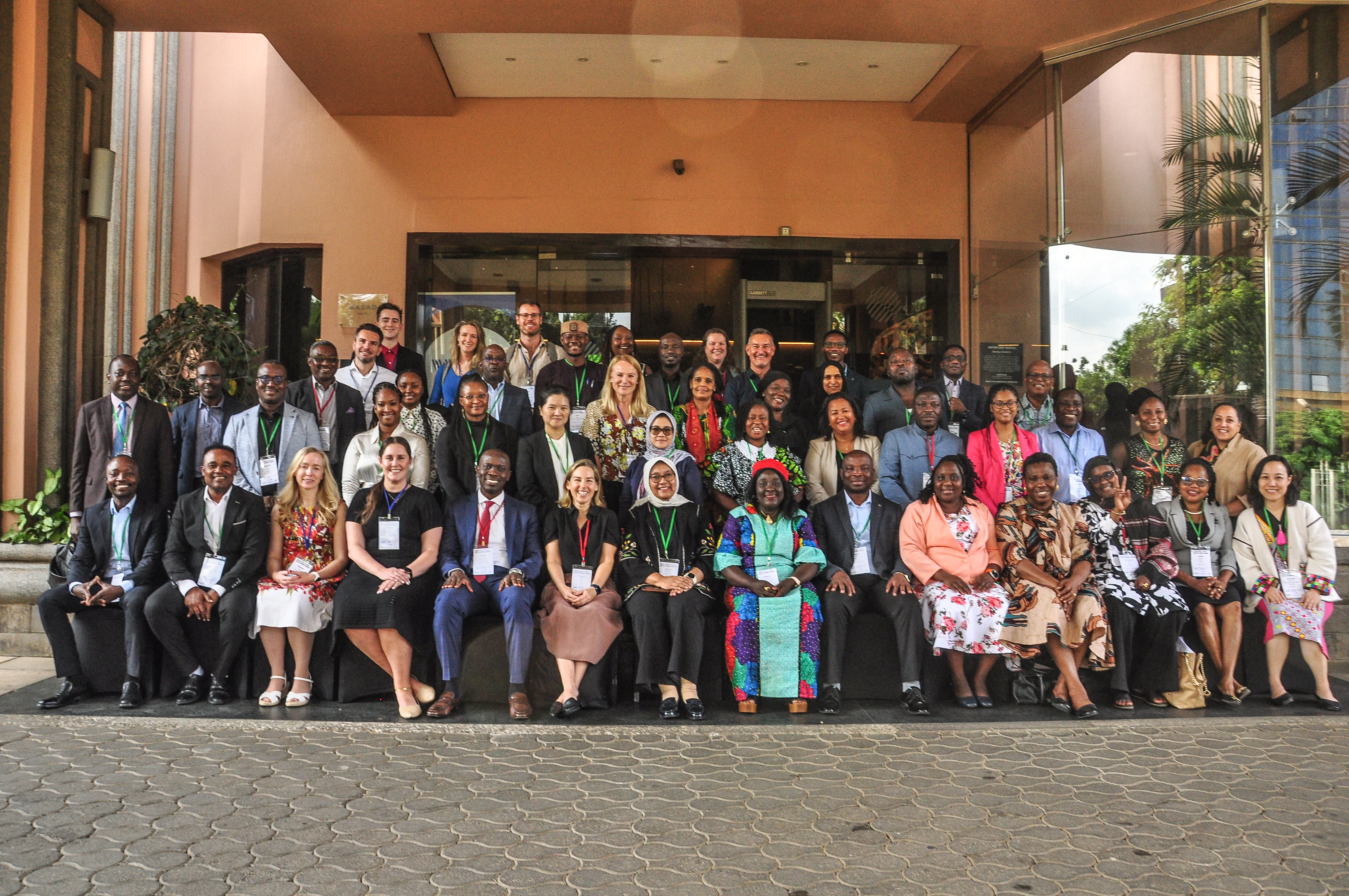Human resources (HR) for supply chain management (SCM) emerged as one of the central pillars of discussions at the Supply Chain Leaders Forum, which took place last week in Nairobi, from 9 to 11 November 2024.
Through the forum, PtD brings together country supply chain (SC) leaders with donor representatives to plan the transition to a country-led approach through knowledge exchange, collaboration and advocacy.
Over three days the SCLF participants – 40 leaders from 24 low- and middle-income countries (LMICs) – discussed topics including client-centricity, stewardship and the role of innovation and the private sector, and sustainability. HR for SCM was singled out by county leaders again and again as one area of the health system that requires development.
As the Director of Pharmaceutical Supply and Service, City Administration of Addis Ababa Health Bureau in Ethiopia, Seife Demissie said, “Workforce development is at the top of our agenda. We’re working to ensure that our supply chain management workforce has the appropriate skills, motivation and working conditions to provide access to health products.”
The SCM workforce: Integral to progress
During the discussions the health SC leaders emphasised the importance of developing and maintaining a skilled and qualified SC workforce. Ensuring health SC systems are client centric will require an expansion of monitoring activities to include indicators that centre on client satisfaction. Human resources – particularly ensuring the supply chain workforce has the skills and competencies to transition to a client-centric health supply chain – was highlighted as one of the areas in need of strengthening to ensure responsibility for these indicators.
Aser Minoungou, executive director of the African Association of Central Purchasing of Essential Medicines (ACAME) said, “We are currently updating our supply chain performance indicators to make sure they’re patient-centric. A competent workforce is central to this and it’s important to work with donors and partners, like PtD, to identify the areas in which HR needs to be strengthened.”
The SCM workforce: Integral to sustainability
Speaking in a panel discussion on Thursday, Danielle Hodjo, deputy director for National pharmaceutical policy at the Department of Pharmaceutical Activity (DAP) in Côte d'Ivoire again highlighted the importance of workforce capacity: “We need to ensure we have the managerial capacity to drive sustainability and supply chain resilience. This is why workforce development should be a priority for us all.”
Poor levels of staff retention and high rates of personnel turnover, it was pointed out, can hinder the continuation of monitoring and evaluation activities, and ultimately, supply chain performance.
Dominique Zwinkels, executive manager of PtD said, “If we’re to make sure that patients are at the centre of health supply chains then we have to start with the personnel responsible for running them. Speaking with country representatives last week it was clear that health SCM professionalisation and leadership are priorities for most countries.
The SCLF meets SPARK
Last week the supply chain leaders also met with health supply chain innovators. The meeting brought together the participants of two events: the Supply Chain Leaders Forum and SPARK, an event that connected ten leading innovators with country decision makers.
The meeting provided an opportunity for the country leaders to discuss the obstacles to health commodity access in their countries with the innovators who, in many cases, are implementing innovative supply chain solutions across the African continent.
Uniting health supply chain leaders and innovators created a platform to consider how innovations could be leveraged to advance the goals of the countries, particularly in the areas of client centricity, national stewardship, and innovation and resilience.

